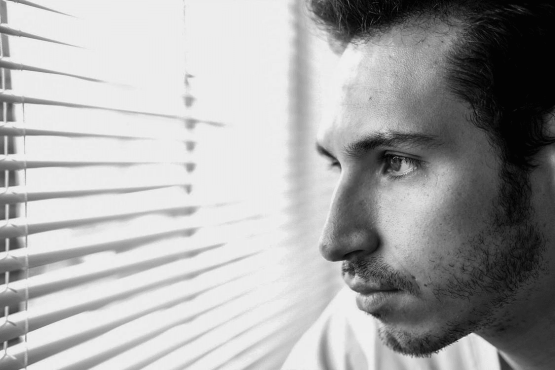Quick Navigation
It’s a sad state of affairs that, most times, the security of a rental property is not on a par with an owner-occupied property. The reason is straightforward. The landlord might be more concerned about the security and safety of the property itself, rather than the tenants. It might seem cold-hearted, but that’s the way it usually is.
The tenants might not be willing to pay for additional security features on a property they might have to leave at a month’s notice. So between this conflict of interest, the security of a rental property might not get the attention that every property deserves.
Whether you are a landlord or a tenant, the safety and security of a property and the people living within should be your prime concern.
Rental Property Security Tips for Landlords
Let’s look at how you should secure your rental property.
Right Tenants
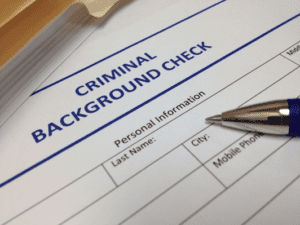
You can do nothing to protect your property from outside if there is a threat from within. Make sure you screen your tenants before you allow them in your property. Especially if you have a multifamily or an apartment building, making sure all your tenants are good, law-abiding citizens will make the rental property safe for you and your other tenants.
If you have a commercial property that you are renting out to a business entity with multiple people, you cannot run background checks on every one of them. What you can do is to make it clear in your contract that if any criminal activity takes place in your property, as the landlord, you won’t be liable for it.
Physical Security
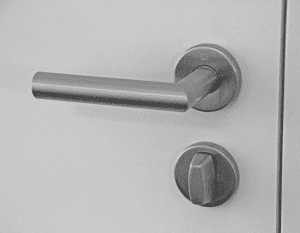
Physical safety measures might make up the bulk of your rental property security. Deadbolts on all doors, security cameras on the entrances, and heavy-duty doors are just some things you can do to make your property more secure from any intruders and miscreants.
When you are installing the best security camera for business in a rental property, it’s essential to leave the inside alone. Even if you explain to your tenants, it’s for their own safety, and also give them the access to the feed, most people won’t like security cameras inside their homes or offices unless they have absolute control over them. It’s best to cover the perimeter, and even that should be discreet.
A simple alarm system can also add a lot to a building or a home’s security. Also, make sure that there are enough lighting fixtures on the outside of the property. Proper illumination discourages shady characters from hanging around your property.
Having a proper boundary, sturdy outside doors, and grilled windows is also a smart idea. These physical barriers will be vital in preventing anyone from entering the building, and they are usually a one-time investment. Security guards are also a good idea for large rental properties. You may decide on a fair split with your tenants about their salary.
It might seem like an added expense, but it’s a long-term investment in property security, and it will add to the attraction of your property.
Coordinating With Your Tenants

A lot of it will depend upon the tenants themselves. You should establish a clear understanding with one another because it’s your property and they’re living (or working) space. Proper security will benefit you both.
It’s best to keep an open mind about the cost of safety measures. If you can’t afford security cameras, but the tenants are able and willing to do so, you should cooperate and compensate them by deducting it from the rent.
It’s also imperative to go over with some basic security tactics with your tenants. They should know what to do in case of emergencies and crimes. Making sure that your rental property is a safe space will be easier if you and tenants are both equally invested.
How Tenants Can Ensure Rental Property Security
Just like landlords, the tenants themselves bear a lot of responsibility for their rental property security., they will the ones most affected by a crime on the property. There are some simple steps tenants can take to ensure the safety of a rental property. It’s hard for tenants because the landlords might not take it too kindly if the tenants fiddle around with their properties, even if it makes the property better.
Wire-free Security Cameras
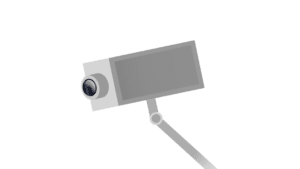
Security cameras can be the eyes and ears that remain open even when you are asleep. You might only have to provide security inside if the landlord already has cameras placed outside the property. But you can still install security cameras outside (with the permission of the landlord). A landlord cannot install security cameras inside the property, so if you want to augment your security with internal cameras, pay for them.
It’s best if you go with the wire-free security cameras. They can be installed with the least modification to the property, and you can easily take them down and reinstall them in your next rental property. You can get a decent pair of indoor and outdoor security cameras for under $120.
Staying Vigilant
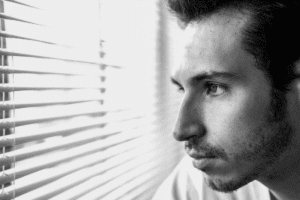
A lot of crimes are crimes of opportunity. A vandal or a thief might strike at your property if they feel it won’t pose much of a threat. It takes most of the physical security measures to deter that. But they premeditate some crimes. They take planning and surveillance. So you should learn to stay vigilant.
Keep an eye out for any unknown people who are hanging around your property, or a vehicle that is repeatedly parked near your property for certain hours of the day. These are just two of the many good vigilance habits that you can pick up, and they will help keep you and your family protected, no matter which rental property you are in.
Small Security Measures
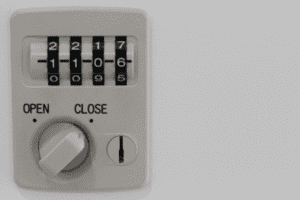
If they strap you for cash or don’t want to invest too much on a rental property, keep an eye out for cheap security-related devices that can be easily installed and taken out of your rental property when you move out. They can be key-chain alarms, proximity sensors, and even fake cameras. For most of them, you might not even require permission from the landlord.
Communicating With the Landlord

Keeping your landlord in the loop is very important for your rental property’s security. It’s also vital that you are familiar with your rental contract and the security responsibilities of tenants and landlords in your state. For example, you might not even be allowed to install a deadbolt in your backdoor without informing your landlord, as it may bar them access to their property.
Similarly, you might ask them to remove the camera that is installed in the hallway but also monitors your apartment door. Security and privacy have a way of butting heads with each other in such scenarios, so you should have your priorities in order.
Final Words
Safety and security is the fundamental human right of every human being. Governments and relevant institutions keep the crime and security threats in control. Similarly, individuals, families, and businesses should take care of their end of the security measures.
Every property should have adequate security. If it’s a rental, landlords and tenants should work together to make the property secure, instead of passing the responsibility on to each other and leaving security stranded in between.

